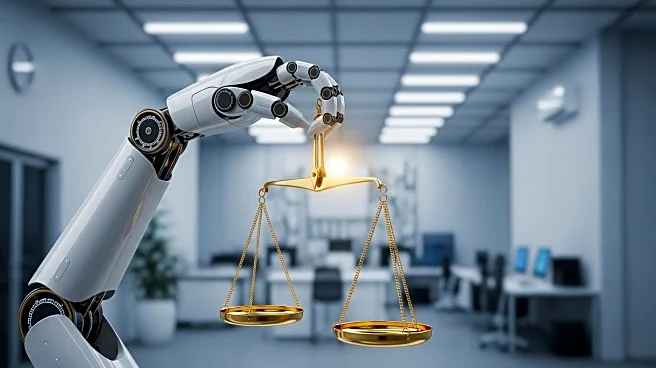What is the story about?
What's Happening?
Sebastian Siemiatkowski, CEO of Klarna, has revealed significant changes in the company's workforce due to artificial intelligence (AI). Klarna has reduced its employee count from 7,400 to approximately 3,000, while increasing revenue and customer base. The company is not hiring new employees, avoiding layoffs by reinvesting payroll savings into employee compensation. Siemiatkowski expressed concerns about AI's deployment in non-democratic countries, despite its benefits. Klarna recently launched its shares on the New York Stock Exchange, serving 111 million customers globally with flexible payment options.
Why It's Important?
Klarna's workforce reduction and salary increase highlight the transformative impact of AI on business operations. This shift reflects broader trends in the tech industry, where AI is reshaping labor dynamics and compensation structures. The company's approach to reinvesting savings into employee compensation could set a precedent for other firms navigating AI integration. Additionally, Siemiatkowski's concerns about AI in non-democratic countries underscore the ethical and geopolitical challenges associated with AI adoption, influencing public policy and international relations.
Beyond the Headlines
The integration of AI in Klarna's operations may signal a shift in the financial sector, where AI-driven efficiencies could redefine traditional business models. This development raises questions about the future of employment and the role of AI in enhancing or replacing human labor. Furthermore, Siemiatkowski's commentary on AI's societal impact suggests a need for regulatory frameworks to address ethical concerns and ensure equitable benefits from AI advancements.















